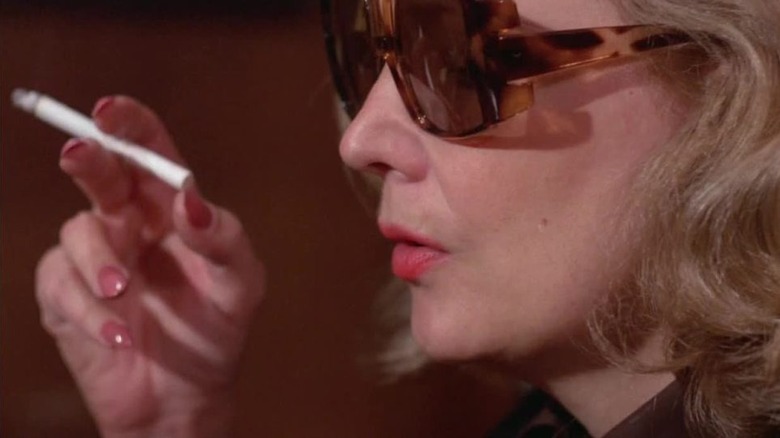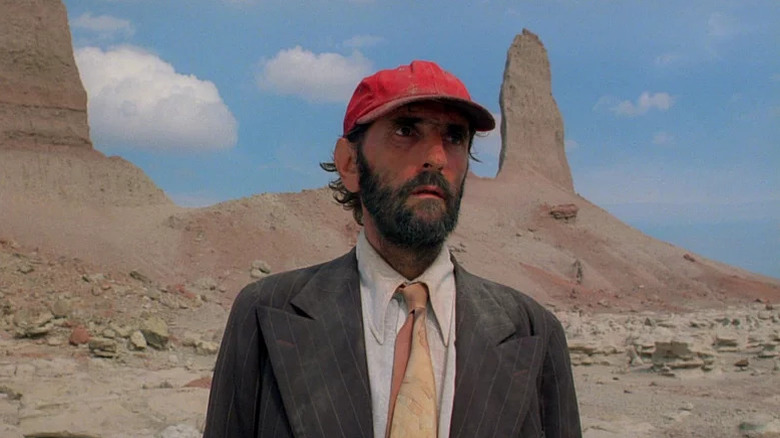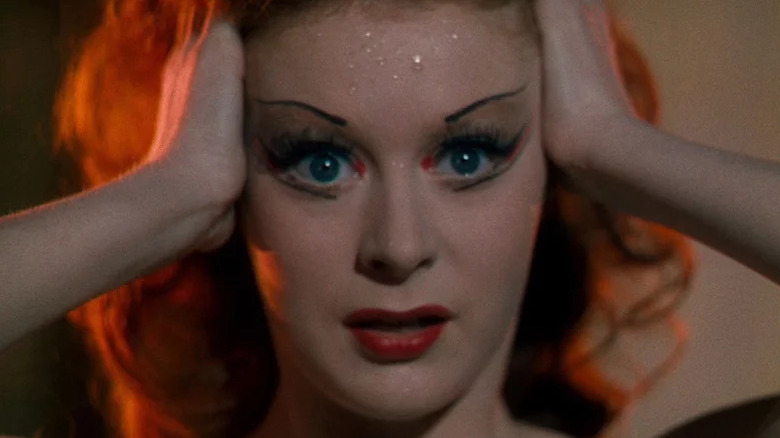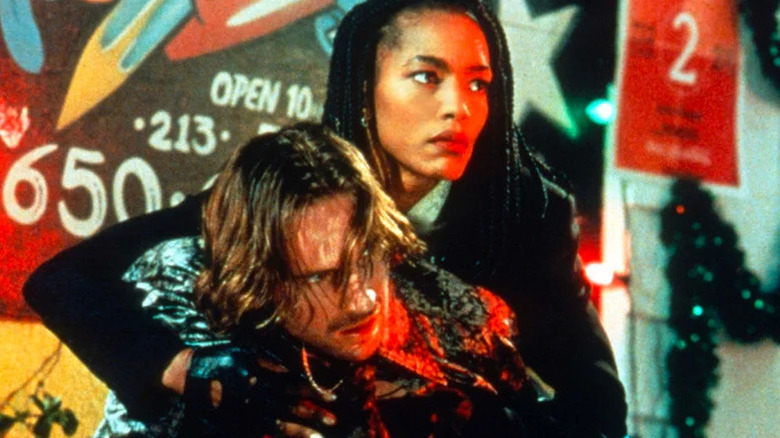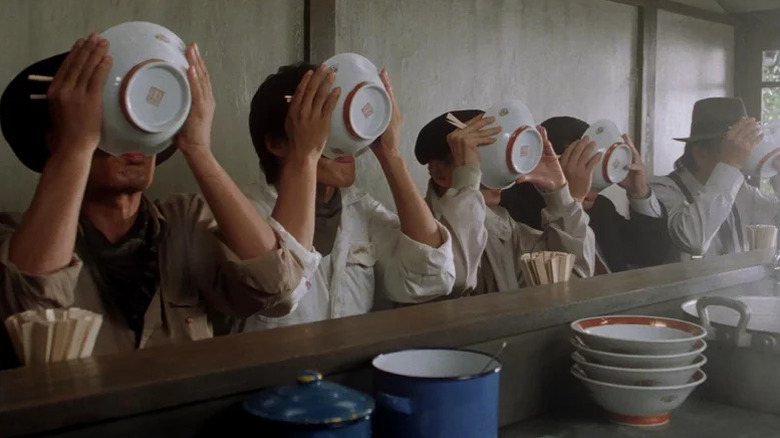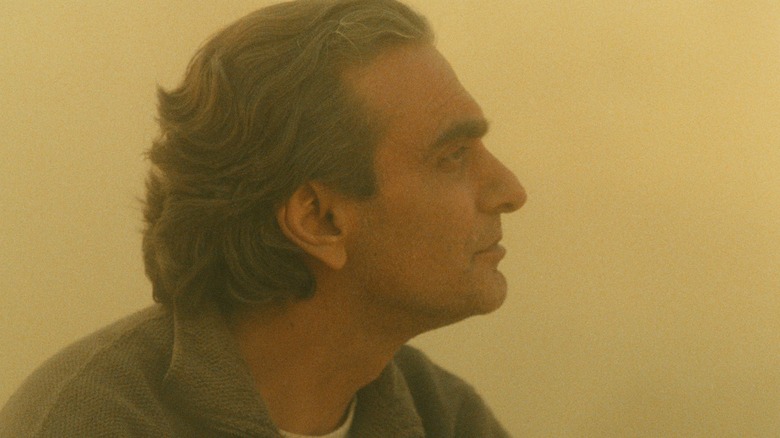The 15 Best Movies Streaming On The Criterion Channel
Every streaming service offers a wide range of films from many genres to watch, but only Criterion Channel adds films to its library based on their cinematic or cultural significance. Founded in 1984, the Criterion Collection focuses on preserving and restoring films deemed important or worthy of further attention. In 2019, the company launched the Criterion Channel as a means to house its film library online.
Celebrated by cinephiles and academics alike, Criterion Channel has become the king of all streaming services in terms of the quality of content it features, especially when it comes to older films. Criterion defines itself as an arbiter of taste, creating a canon of noteworthy cinema.
However, with over 3,000 films available on the platform, it's challenging to know where to begin. Just because a film has been deemed important or in need of restoration doesn't necessarily mean it's good, as film taste is inherently subjective. Keep reading for 15 films from this canon that represent the very best Criterion Channel has to offer.
Autumn Sonata
One of the most revered filmmakers of all time, Ingmar Bergman's influence prevails in cinematic movements from around the world. The Swedish director was fascinated with psychology and how personal relationships, environments, and identity can shape a person's soul.
In "Autumn Sonata," as in most of his films, Bergman explores these topics on an intimate scale. The film stars Liv Ullmann (a frequent Bergman collaborator) as Eva, and Ingrid Bergman (in her last role) as Charlotte, Eva's mother. Eva invites her mother, a renowned pianist, to stay at her house with her disabled sister, Helena (Lena Nyman), and husband Viktor (Halvar Björk).
Charlotte was a neglectful mother to both her daughters, and doesn't seem to respect or care for them at all. Mother and daughter have an emotional confrontation in the middle of the night, as Eva reveals how deeply Charlotte has hurt her and Charlotte attempts to atone for her sins. Though it's a difficult watch, "Autumn Sonata" features some of the best acting ever put to film and delivers an incisive look at psychological damage.
The Battle of Algiers
Though "The Battle of Algiers" is technically a work of fiction, it can be easily mistaken for a documentary. Set in the mid-1950s, the film follows the rebels' retaliation against the French government during the Algerian War. Director Gillo Pontecorvo shot the film on location using a handheld camera to capture the action in a realistic, fly-on-the-wall manner. Most of the movie's cast were non-professional actors who had lived through the actual battle.
Considered a part of the Italian neorealist movement, "The Battle of Algiers" strives for authenticity and realism at every turn. Though it doesn't contain any scenes of manufactured drama, the film's newsreel style and the intensity of the battle –- as well as Ennio Morricone's incredible score — make for a thrilling watch. While Pontecorvo didn't hide his political beliefs, he created an even-handed film where the camera serves as an objective spectator. Banned in France for several years after its release, the film has remained relevant and piercing in every decade since then (and was one of Anthony Bourdain's favorite Criterion Collection movies).
Beau Travail
Claire Denis' 1999 film "Beau Travail" has entered the canon of Important Films time and time again. A frequent feature on greatest films of all time lists, none of Denis' other films have achieved such acclaim. Based on Herman Melville's novella "Billy Budd, Sailor," the movie takes place in Djibouti and follows a group of French Foreign Legion soldiers stationed there.
Denis Lavant plays Galoup, the second-in-command who enjoys his time leading the soldiers and living a life of strict discipline. When a new soldier, Sentain (Grégoire Colin), arrives, Galoup's obsession and jealousy threaten to destroy the peace he's cultivated.
Beautifully shot on location by cinematographer Agnès Godard, the film relies on its evocative landscape and the physical movements of the characters to tell the story. The soldiers' daily training rituals turn into choreographed dances when paired with Benjamin Britten's opera, based on the novella. A stunning meditation on colonialism, masculinity, and repressed desire, the movie's dazzling ending –- considered one of the best of all time –- assures that the film won't be leaving the cinematic canon anytime soon.
Brief Encounter
Best known for towering epics like "Lawrence of Arabia" and "Doctor Zhivago," David Lean's quietest film is also one of his best. Based on a play by Noël Coward, 1945's "Brief Encounter" follows a doomed romance that never leaves the station.
Celia Johnson, giving a perfectly-tuned performance, plays Laura, a weary housewife who takes the train into town on her weekly errands. Laura runs into Dr. Alec Harvey (Trevor Howard) during one of these outings, and the two strike up a friendship. As their affection for one another turns to love, they continue their weekly meetings in public, but the deception wears on them both.
One of the most restrained romances in all of cinema, "Brief Encounter" still manages to pull at the heartstrings. Fans of "Carol," Todd Haynes' quietly powerful drama, are destined to love "Brief Encounter," as Haynes' film explicitly mirrors the beginning and end of Lean's picture. The film beautifully exemplifies the "less is more" philosophy. With no grand romantic gestures a lá "Casablanca" or "An Affair to Remember," "Brief Encounter" is just as moving -– if not more so –- than cinema's flashier love stories.
Cléo from 5 to 7
Though Jean-Luc Godard and François Truffaut are the names most associated with the French New Wave, Belgian filmmaker Agnes Varda preceded them both. In 1955, her film "La Pointe Courte" premiered, pre-dating Godard and Truffaut's debuts by several years. 1962 saw the release of her second film, "Cléo from 5 to 7," often considered Varda's masterpiece. A formally innovative film, "Cléo from 5 to 7" unfolds in real time. Corinne Marchand plays Cléo, a singer waiting to get the results of a test that might confirm she has cancer. We follow her from 5:00 p.m. to 6:30 p.m. (the exact runtime of the film) as she goes about her evening, struggling to put the test results out of her mind.
While the film is fast-paced and even lighthearted at times, its lively facade contains within it a pensive, existential story. Cléo can be a frivolous, self-absorbed pop star at times, but her fears are profound. Marchand's first-rate performance is defined by her ability to balance these two opposing qualities, while the film's cinematography (Varda trained as a photographer) captures some of the most tender, poetic images in cinema.
The Graduate
Mike Nichols' "The Graduate" gave us both an iconic song and a major change to the business of Hollywood. "The Graduate" came out in 1967, the same year as "Bonnie and Clyde." The two films, representing sex and violence, respectively, ushered in the current MPAA rating system, meaning films were no longer rated for all audiences.
Essentially, 1967 marked the arrival of distinctly "adult" films, and "The Graduate" takes the transition into adulthood as its central focus. Dustin Hoffman plays Benjamin Braddock, a recent college graduate trying to avoid thinking about what he wants to do with his life. Mrs. Robinson (Anne Bancroft), a housewife who seduces Benjamin, interrupts his humdrum existence, but problems arise when Benjamin falls for Mrs. Robinson's daughter, Elaine (Katharine Ross).
"The Graduate" is beautifully shot and edited (check out those awesome match cuts), endlessly relatable, and scored to perfection. The film produced the beloved Simon & Garfunkel song "Mrs. Robinson" (originally titled "Mrs. Roosevelt"), and included many great musical moments, including an incredibly apt and hilarious use of "The Sound of Silence." If those needle drops don't convince you the film is a jewel of cinema, that biting ending surely will.
Hiroshima mon amour
Though sometimes associated with the French New Wave, filmmaker Alain Resnais has more in common with "Left Bank" artists, who tended to be concerned with modernism and leftist politics. His 1959 tour de force, "Hiroshima mon amour," stunningly illuminates these aesthetic and political commitments. A co-production between France and Japan, the film ponders the aftermath of the Hiroshima bombing through a cross-cultural romance.
Resnais' film explores our relationship to time and memory, using flashbacks to create an impressionistic, nonlinear narrative. The film opens with a French woman explaining the horrors of the bombing after visiting a museum there, as newsreel footage flashes on the screen. In response, a Japanese man repeatedly tells her, "You saw nothing in Hiroshima."
A French actress (Emmanuelle Riva) begins an affair with a Japanese architect (Eiji Okada), and many of their conversations revolve around memory and the things they do not and cannot know about each other. Comprised almost entirely of conversations between the two characters, Marguerite Duras' powerful script depicts an amorous affair impaired by trauma and the fragility of memory, and Resnais' innovative direction deepens this existential unease.
In The Mood For Love
One of the greatest romance films of all time, "In The Mood For Love" depicts an affair that never takes flight. Maggie Chung and Tony Leung, two of the most popular and gorgeous movie stars in the world, play neighbors living in 1960s Hong Kong. When Chow Mo-wan (Leung) and Su Li-zhen (Chung) discover their spouses are having an affair, they meet to commiserate. Their casual acquaintance turns romantic, but neither feels able to act on their desires.
Mo-wan and Li-zhen are both lonely, depressed people, but their bond never quite alleviates these feelings, because they can't overcome their own guilty resignation and the self-fulfilling prophecy of their passivity. Mo-wan and Li-zhen live out a quiet, muted love story (they don't even kiss), and the film's passion exists not in the dialogue but in its imagery. Their scenes together are bathed in deep, flushed red, while their time apart, at their places of work, cools their passion with apathetic greens and blues. "In The Mood For Love" marries beauty and gloom with colorful symbolism — no words necessary.
Jeanne Dielman, 23 quai du Commerce, 1080 Bruxelles
The most potent film about time in all of cinema, "Jeanne Dielman, 23 quai du Commerce, 1080 Bruxelles," has only become more acclaimed over the years, as Sight and Sound ranked it as the greatest film of all time in 2022. Directed by Belgian filmmaker Chantal Akerman, "Jeanne Dielman" is like no other film before or since. Delphine Seyrig plays the title character, a widowed housewife who spends her days doing work around the house, going on errands, and engaging in sex work every afternoon.
Akerman called the film a reaction to "a hierarchy of images" that places actions like kissing or fighting higher up than doing the dishes or folding laundry. An explicitly feminist film made with an all-female crew, "Jeanne Dielman" forces the viewer to sit with the monotony of Jeanne's life, highlighting the difficult work of a housewife. Throughout its 200-minute runtime, the film never lets the audience forget they are spending their time watching a film, compelling the viewer to experience movie time in an unfamiliar way, and making its unsettling conclusion all the more poignant.
Opening Night
Perhaps the greatest director/actor pair in the movies (and one of cinema's most legendary couples), every collaboration between John Cassavetes and his wife Gena Rowlands is an enormous contribution to the art form. Their best-known collaboration, "A Woman Under the Influence," contains an all-time best performance from the singular Rowlands, who plays a housewife experiencing mental distress.
"Opening Night," in which Cassavetes also stars, is their pièce de résistance. Rowlands plays Myrtle Gordon, an alcoholic actress preparing to premiere her next play. When one of her fans dies, Myrtle becomes obsessed with the accident, which furthers her fear of aging and leads to a nervous breakdown as the show attempts to go on.
As in many of Cassavetes' films, the psychological distress in "Opening Night" ramps up to hysterical levels as the film progresses. A slightly easier watch than the harrowing "A Woman Under the Influence," "Opening Night" nonetheless turns the neurosis up to eleven, allowing Rowlands to put her entire body and soul into her full-throttle performance. As fiction and reality blur together, the stakes rise until they can't go any further.
Paris, Texas
Though Paris, Texas, is a real town in the Lone Star State, for most, the name brings to mind Wim Wenders' 1984 film. A neo-western, "Paris, Texas" follows a dishheveled man as he traverses the decaying towns and eroding landforms of the Southwest. Harry Dean Stanton plays Travis, who we meet as a man wandering the desert with no personal connections or memories. He reunites with his brother, Walt (Dean Stockwell), and son, Hunter (Hunter Carson). Travis decides to search for Hunter's mother, Jane (Nastassja Kinski), and Hunter joins him on his quest.
Written by the late, great playwright Sam Shepard, the film unfolds a delicate character study, as Travis slowly begins to open up and recover his memories. He tracks down Jane in Houston, where she works at a peep show club. In the movie's defining moment, Travis visits Jane at the club, talking to her on the telephone as she sits in front of a one-way mirror. During this 12-minute scene, Travis explains the story of his and Jane's life in the third person, and we learn everything we need to know (which amounts to very little) about these starkly drawn characters.
The Red Shoes
The British filmmaking duo Michael Powell and Emeric Pressburger made 24 films together over their decades-long careers, and 1948's "The Red Shoes" is one of their masterpieces. A technicolor explosion and one of the greatest films ever made about creating art, "The Red Shoes" follows ballerina Victoria Page (Moira Shearer). The head of the ballet, Boris Lermontov (Anton Walbrook), gives her a fatal choice between life and art, prohibiting any romance from flourishing.
A classic backstage musical, the film tracks Moira's exploits both on and off the stage. In what is no doubt one of the greatest sequences in cinema history, "The Red Shoes" features a 17-minute ballet performance that halts the off-stage plot, lulling the audience into a state of dream-like awe. Shearer was a ballerina before she was an actress and shows off her extraordinary talent in this scene, aided by breathtaking production design and lush, passionate colors. Based on a Hans Christian Andersen fairytale, "The Red Shoes" goes dark like much of Andersen's work, but the beauty therein astounds.
Strange Days
In 1991, Kathryn Bigelow blessed us with a (gay) subversion of the dude movie in the form of "Point Break." In 1995, her most underrated film premiered. Set in Los Angeles two days before the new millennium, "Strange Days" follows Lenny Nero (Ralph Fiennes), the underground salesman of virtual reality recordings from a device that records users' memories and feelings onto a hard drive. When ex-cop Nero finds a recording of a murder, he teams up with bodyguard Mace (Angela Bassett) to solve the crime, which involves his ex-girlfriend (a punk rock Juliette Lewis) and his former employers.
Despite its mesmerizing visuals and intriguing story, "Strange Days" was a box office bomb that could have tanked Bigelow's career. Thankfully, the folks at Criterion rescued the film from oblivion.
Set only four years into the future, "Strange Days" depicts a dystopian Los Angeles riddled with violence and corruption. Written by Bigelow's ex-husband, James Cameron, the film explicitly comments on police brutality, drawing inspiration from several recent events in the 1990s. The brilliant opening scene of "Strange Days," which took six months to set up, forces the viewer to experience one of these VR recordings, launching the film's indictment of moviegoers' taste for on-screen violence.
Tampopo
One of the best food movies of all time, "Tampopo" is a feast for the eyes and a treat for the heart. A comedic quest for the perfect bowl of ramen, the film is equally satirical and heartfelt. We're introduced to Goro (Tsutomu Yamazaki), a truck driver and ramen connoisseur. He crosses paths with Tampopo (Nobuko Miyamoto), the widowed owner of a ramen shop struggling to please her customers. Tampopo asks Goro to become her ramen teacher, and together, they traverse Tokyo, tasting the food of their competitors and studying the art of ramen making.
Alongside Goro and Tampopo's quest, we're treated to a dozen interludes featuring minor characters consuming food in strange ways. These include a mysterious man in a white suit and his lover passing an egg yolk back and forth between their mouths, and a woman who rises from her deathbed to cook her final meal. "Tampopo" satirizes several American movie genres and conventions, including the Western (the project was marketed as a "ramen Western," a reference to the Italian "Spaghetti Western) and the gangster film. It's an utterly delightful movie that depicts cooking and eating food as a near-religious act.
Taste of Cherry
The 1997 film "Taste of Cherry," written, directed, produced, and edited by legendary filmmaker Abbas Kiarostami, was the first Iranian film to win the Palme d'Or at Cannes. Straightforward and minimalist in its narrative and visual storytelling, the film nonetheless asks –- but doesn't often answer -– big questions about the nature of human existence.
Homayoun Ershadi plays Mr. Badii, a middle-aged man with plans to kill himself. He drives around Tehran looking for people to do the job for him, explaining that he has already dug his own grave and requires this person to help him out of the grave if he chooses to live, or bury him if he chooses to die. He never explains his reasoning to anyone. He invites three passengers into his car: a taxidermist, a soldier, and a seminarian. Through long conversations with the trio, Mr. Badii gets three different perspectives on ethics and free will. Like many of Kiarostami's films, "The Taste of Cherry" tells a sweeping fable on the smallest of scales. Its profundity lies in its simplicity.
![Composite image of Tsutomu Yamazaki as Goro in Tampopo, Dustin Hoffman as Benjamin in The Graduate, Delphine Seyrig as Jeanne Dielman in Jeanne Dielman [...], Ralph Fiennes as Lenny in Strange Days, all in four corners, with Corinne Marchand as Cléo in Cléo From 5 to 7 in center circle](https://www.slashfilm.com/img/gallery/the-15-best-movies-streaming-on-the-criterion-channel/intro-1750302735.jpg)
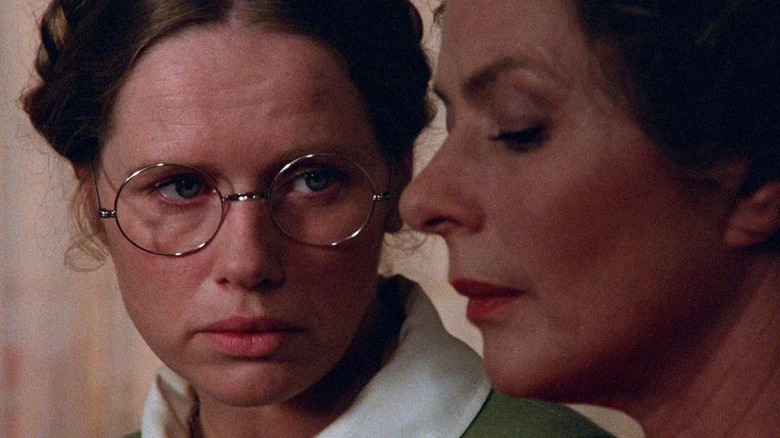
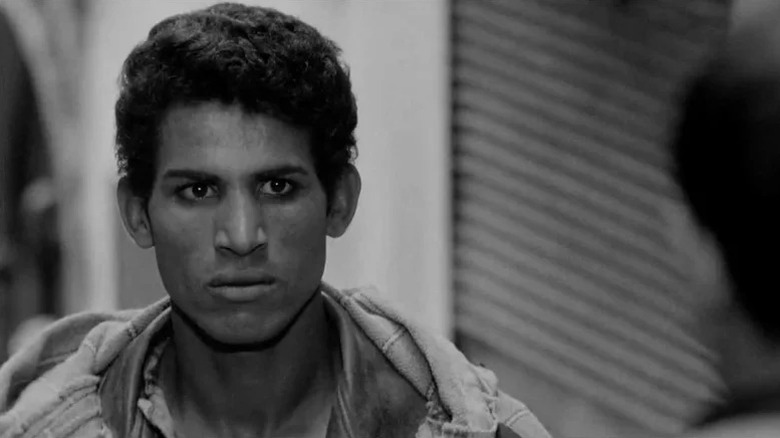
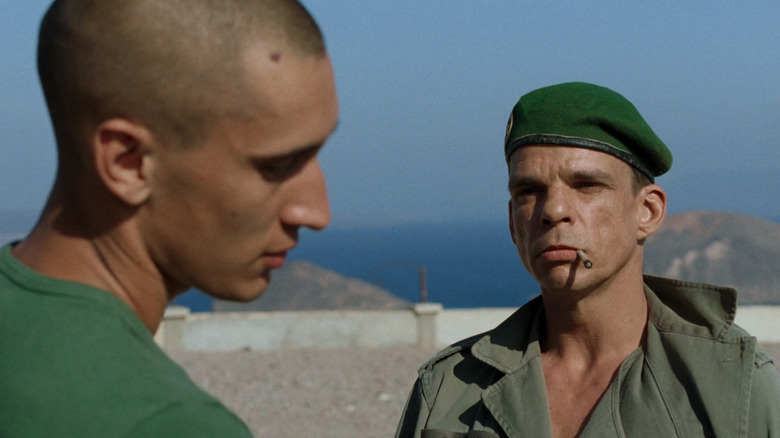
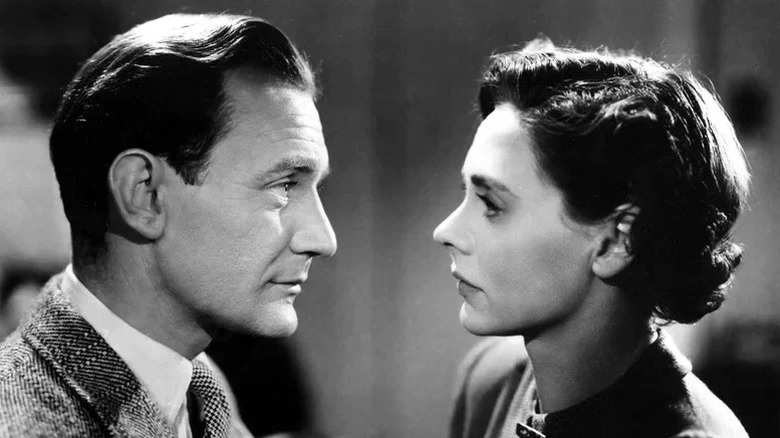
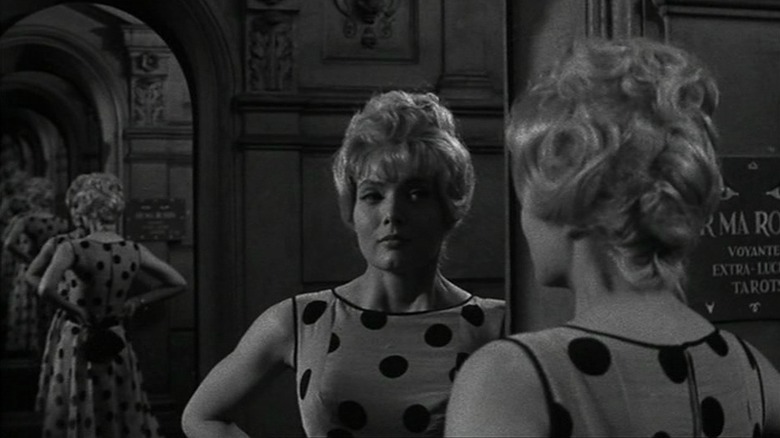
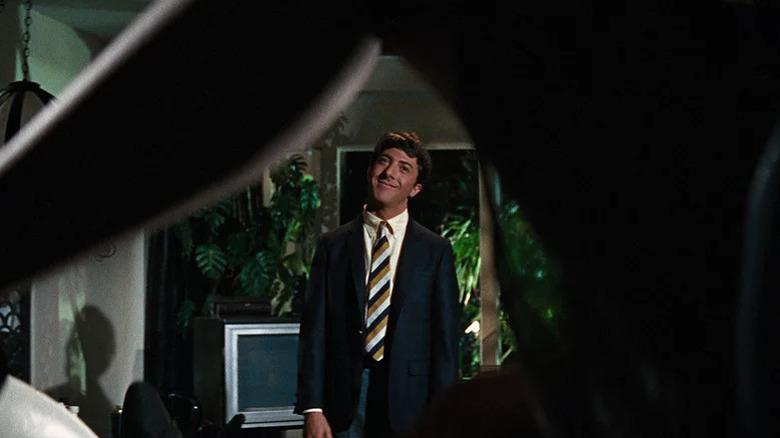
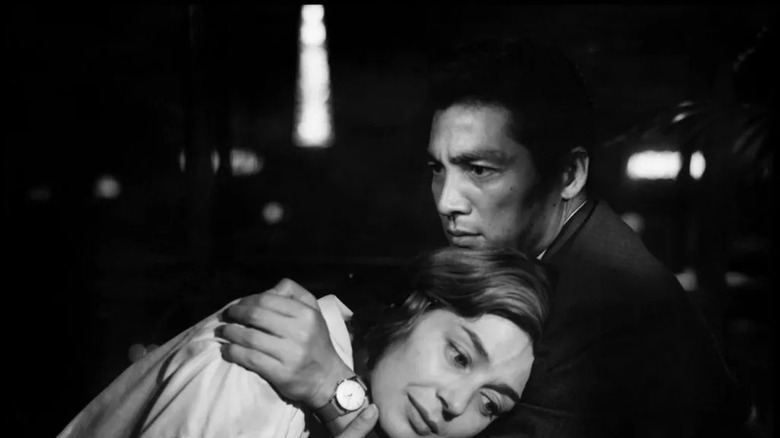
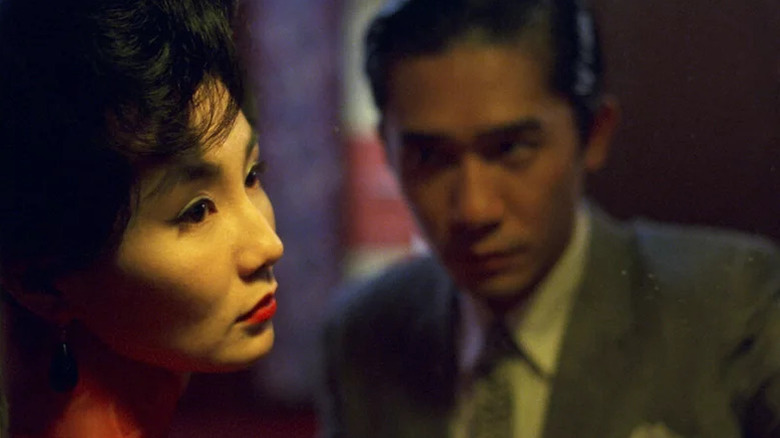
![Delphine Seyrig as Jeanne Dielman in Jeanne Dielman [...]](https://www.slashfilm.com/img/gallery/the-15-best-movies-streaming-on-the-criterion-channel/jeanne-dielman-23-quai-du-commerce-1080-bruxelles-1750302740.jpg)
